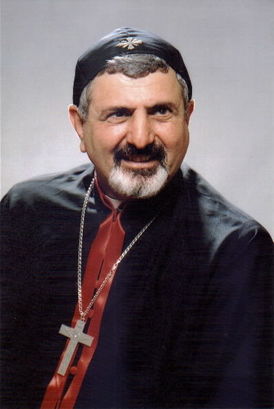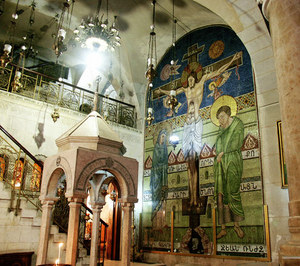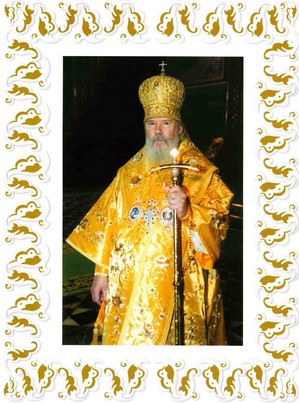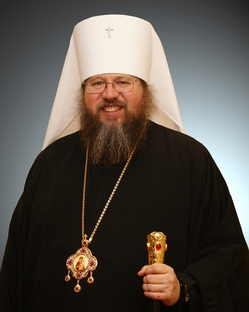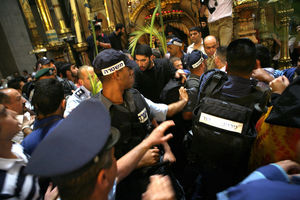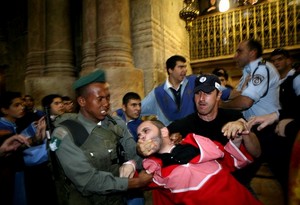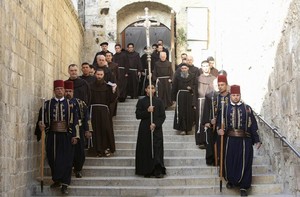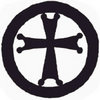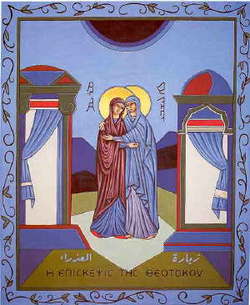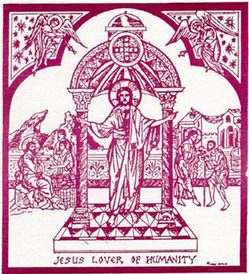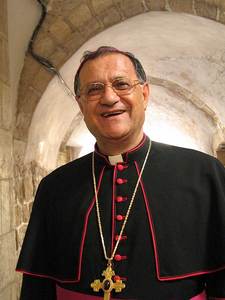 True to itself and its focus on what Eastern Christians have to say, Oasis asked His Beatitude, Archbishop Fouad Twal, the Latin Patriarch of Jerusalem, for his opinion about what is happening in Gaza right now. Oasis met him at this home, in Jerusalem, a few days after the start of Israel’s ‘Cast Lead’ operation. Archbishop Twal’s words show a man clearly affected by the situation, concerned that things might be going backward with disastrous consequences for the whole region.
True to itself and its focus on what Eastern Christians have to say, Oasis asked His Beatitude, Archbishop Fouad Twal, the Latin Patriarch of Jerusalem, for his opinion about what is happening in Gaza right now. Oasis met him at this home, in Jerusalem, a few days after the start of Israel’s ‘Cast Lead’ operation. Archbishop Twal’s words show a man clearly affected by the situation, concerned that things might be going backward with disastrous consequences for the whole region.
Your Beatitude, what are your thoughts about the latest developments?
In our Christmas message we had given voice to hope for peace in the Holy Land. Things seemed close at hand. More and more private meetings were taking place; pilgrims were coming in greater numbers; the economic situation in the Territories was getting better. Now, things are back where they were years ago. Military solutions are never good; violence begets violence. There is a clear imbalance between the parties. There have been too many innocent victims who have nothing to do with Hamas: women, children, families who had a right to lead a normal life, free. Gaza is under siege by land, sea and air. The city has been turned into an open air prison. Objectively such conditions cannot favour peace and reconciliation. In any case it certainly will not boost hope that violence will stop one day. On the contrary!
Doesn’t Israel have a right to defend itself?
Of course! Everyone has the right to self-defence. Israel has won every war in defending itself, but has achieved neither peace, nor security. Counting only on the military option without offering people real alternatives is not a solution. Gaza’s siege does not date from yesterday. This applies to Palestinians as well because even the most extreme situation does not cancel one’s moral responsibilities vis-à-vis one’s actions. But this is true not only for Palestinians.
What is a way out then?
I’ll leave that to the politicians and the specialists. It’s obvious that diplomatic negotiations have not led to good results as far as violence in Gaza is concerned. And yet we can also see that awareness about solving this problem has increased at the international level. There are three or four good initiatives underway. The world seems to be doing more to solve the problems of the Middle East. Hope never dies, even if it is already very late. The only way out is political. But if there is no good will by the parties involved, all we’ll ever get are empty words, promises and meetings without any results.
What should Christians in the Holy Land and around the world do about events in Gaza?
First of all everyone must assume his or her responsibilities. Violence calls for our conversion. Our heart must convert, what we say must change, our outlook must change. Widespread mistrust does not help; it is very destructive.
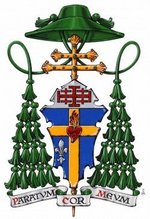 Is the visit by the Holy Father a good idea?
Is the visit by the Holy Father a good idea?
In Jerusalem we are grateful to the Pope for his constant attention and words. We are certain that a visit would help us a lot; the same is true for pilgrims who come to the Holy Land. They can help us remind the international community that joint action is always more courageous; they can exert pressure in favour of greater justice and peace for all. Pious words are not enough; we need acts of courage.
Courtesy of the Oasis International Studies and Research Centre
